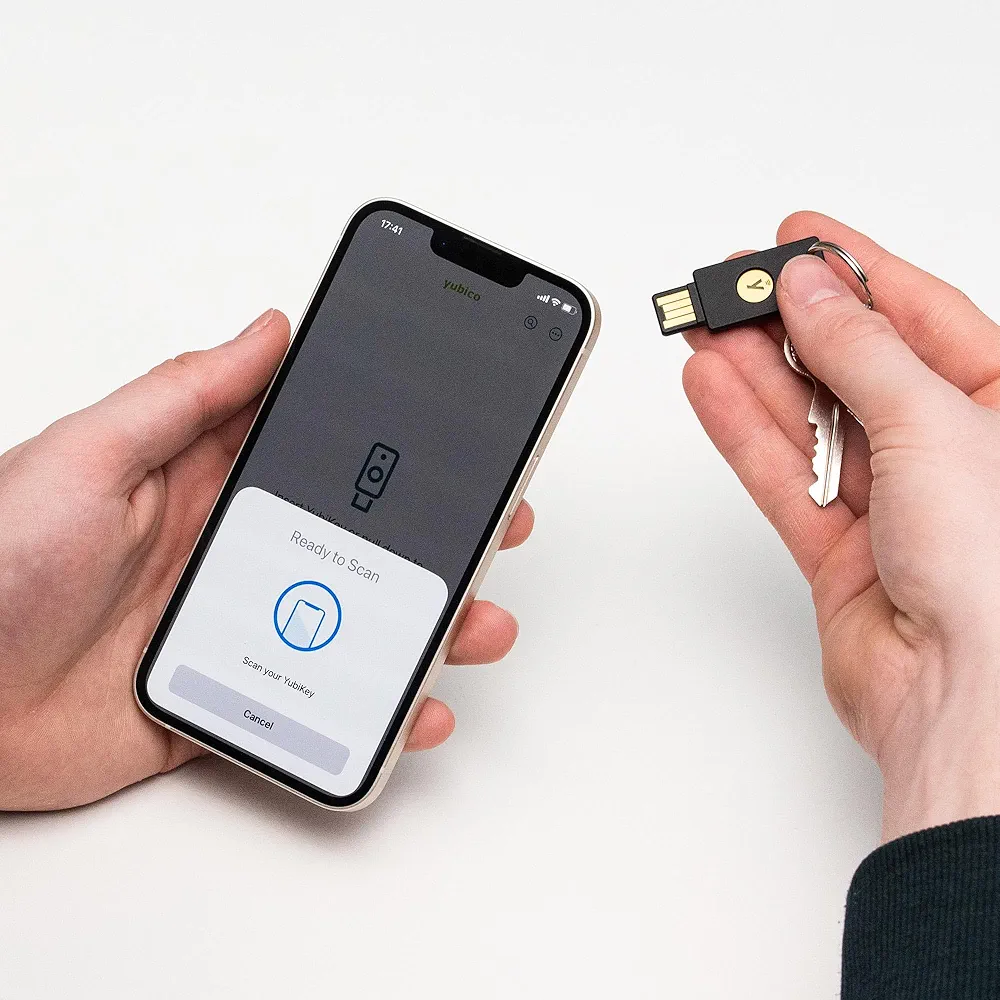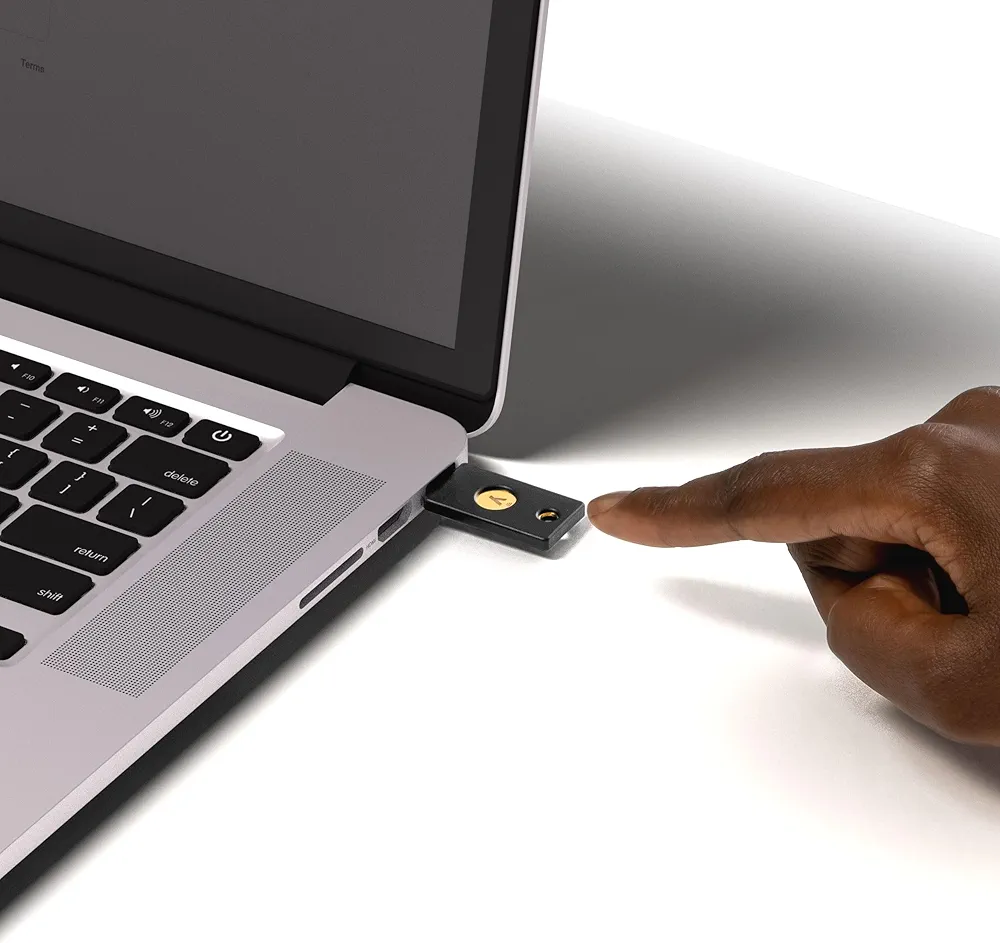Yubikey is a powerful tool in the fight against preventing unauthorised access and data breaches. This small, unassuming device has become a cornerstone of robust security practices for individuals and organisations alike. But what exactly is a YubiKey, and why has it gained such prominence in the world of digital security?
At its core, a YubiKey is a hardware authenticator developed by Yubico, a company at the forefront of open authentication standards. This physical device, typically no larger than a standard USB drive, serves as a second factor in two-factor authentication (2FA) systems.
The primary function of a YubiKey is to provide a physical, tangible element to the authentication process. However, it goes beyond the capabilities of traditional 2FA methods, offering a level of security that software-based authenticators struggle to match.

When you attempt to log into a supported account, you not only need to know your password but also need to physically possess and interact with the YubiKey. This combination of “something you know” (your password) and “something you have” (the YubiKey) creates a formidable barrier against unauthorised access.
Why use a YubiKey instead of other 2FA methods?
The answer lies in its versatility and enhanced security features. Unlike SMS-based 2FA, which can be vulnerable to SIM swapping attacks, or software authenticator apps that could potentially be compromised if your device is hacked, a YubiKey is a separate, offline device. It’s not connected to any network when not in use, making it virtually immune to remote hacking attempts.
YubiKeys support multiple authentication protocols, including FIDO U2F, FIDO2, and WebAuthn. This broad support means that a single YubiKey can be used across a wide range of services and accounts, from Google and Microsoft to GitHub and Dropbox. For individuals managing multiple accounts or businesses implementing security policies, this versatility is a significant advantage.
Is YubiKey Recommended For Everyday Users?
The answer is a resounding yes, especially for those who prioritse security. Cybersecurity experts, tech-savvy individuals, and businesses handling sensitive data often recommend YubiKeys as a best practice in security. They’re particularly valuable for high-value targets such as cryptocurrency wallets, enterprise systems, or accounts with access to sensitive information.

However, like any technology, YubiKeys come with their own set of pros and cons. On the positive side, they offer unparalleled security. The physical nature of the key means that remote attacks are virtually impossible. They’re also durable, require no battery, and are easy to use – often requiring just a simple touch to authenticate. For organisations, YubiKeys can significantly reduce the risk of phishing attacks and credential theft, potentially saving millions in potential breach costs.
Yubikey Disadvantages
On the flip side, YubiKeys do have some drawbacks. The most obvious is the need to physically carry the device with you. If you forget your YubiKey or lose it, you might be locked out of your accounts (though most services offer backup methods).
There’s also a financial cost involved in purchasing YubiKeys, which can be a consideration for individuals or organisations looking to deploy them at scale. Additionally, not all services support YubiKey authentication, which can limit its usefulness in some contexts.
It’s also worth noting that while YubiKeys significantly enhance security, they should be used as part of a comprehensive security strategy that includes strong, unique passwords, regular software updates, and user education about security best practices.
The YubiKey represents a significant advancement in authentication technology. Its combination of robust security, ease of use, and versatility makes it a recommended choice for anyone serious about protecting their digital assets. While it may require some adjustment to your habits and comes with a few minor inconveniences.
The peace of mind and enhanced security it provides are, for many, well worth the trade-off. As we continue to conduct more of our lives online, tools like the YubiKey will likely play an increasingly important role in safeguarding our digital identities and sensitive information.
